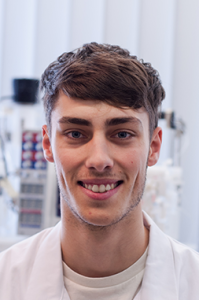
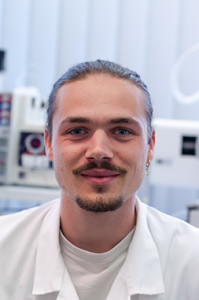
We are very pleased to welcome two new PhD students to CiTOS — or perhaps we should say welcome back, as both Nicolas Leclercq and Cassian Desmons spent the past year with us during their Master’s theses and have now decided to continue their scientific journeys within the lab.
Nicolas Leclercq completed his Master’s degree at the University of Liège, including a one-year internship at CiTOS where he joined the WEL-T team. His previous work focused on the neutralization of active pharmaceutical ingredients in continuous processes, giving him a strong foundation in flow chemistry. As a PhD student, Nicolas will now contribute to the development of photo-flow platforms, with the aim of improving the control and understanding of highly reactive photogenerated intermediates.
Cassian Desmons, who also completed his Master’s degree in chemistry at the University of Liège in 2025, had the opportunity during his thesis to explore the technologies and methodologies used at CiTOS in the context of organic synthesis. Motivated by this experience, he now joins the team as a PhD candidate. His research will focus on continuous-flow gas handling using dinitrogen trioxide (N2O3) and its associated nitrosation chemistry.
We are excited to see both Nicolas and Cassian continue their work with us and look forward to the contributions they will bring to the lab over the coming years. Welcome back to CiTOS!

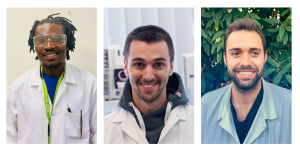
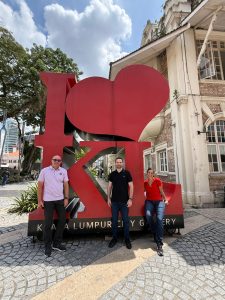 Last week, Jean-Christophe Monbaliu and Diana V. Silva-Brenes traveled to Southeast Asia to engage with the region’s vibrant and rapidly growing flow chemistry community. The journey offered a unique blend of scientific exchange, collaboration building, and cultural discovery.
Last week, Jean-Christophe Monbaliu and Diana V. Silva-Brenes traveled to Southeast Asia to engage with the region’s vibrant and rapidly growing flow chemistry community. The journey offered a unique blend of scientific exchange, collaboration building, and cultural discovery.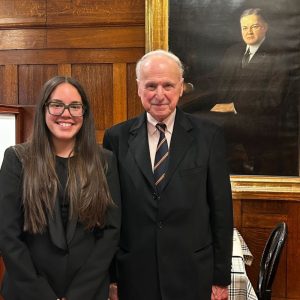 CiTOS is pleased to welcome Grecia Y. Geigel Rodríguez, a doctoral researcher from Puerto Rico who has earned one of the highly selective Belgian American Educational Foundation (BAEF) fellowships. Awarded to only ten students across the United States each year, this distinction will allow her to spend 12 months at CiTOS advancing her work in sustainable pharmaceutical manufacturing.
CiTOS is pleased to welcome Grecia Y. Geigel Rodríguez, a doctoral researcher from Puerto Rico who has earned one of the highly selective Belgian American Educational Foundation (BAEF) fellowships. Awarded to only ten students across the United States each year, this distinction will allow her to spend 12 months at CiTOS advancing her work in sustainable pharmaceutical manufacturing.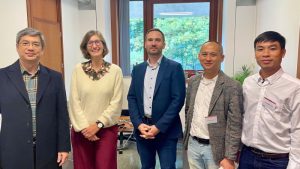 t was a real pleasure to welcome Prof. Dr. Ngo Quoc Anh, Dr. Tran Quang Hung, and Dr. Nguyen Le Anh from the Institute of Chemistry – Vietnam Academy of Science and Technology.
t was a real pleasure to welcome Prof. Dr. Ngo Quoc Anh, Dr. Tran Quang Hung, and Dr. Nguyen Le Anh from the Institute of Chemistry – Vietnam Academy of Science and Technology.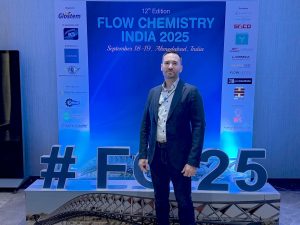 Last week, Jean-Christophe Monbaliu and Diana Silva had the pleasure of representing CiTOS at Flow Chemistry India 2025 (FCI2025) in Ahmedabad—an event that once again proved to be a vibrant hub for scientific exchange, industrial insight, and meaningful connections.
Last week, Jean-Christophe Monbaliu and Diana Silva had the pleasure of representing CiTOS at Flow Chemistry India 2025 (FCI2025) in Ahmedabad—an event that once again proved to be a vibrant hub for scientific exchange, industrial insight, and meaningful connections.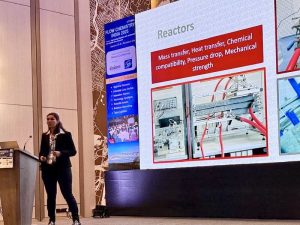

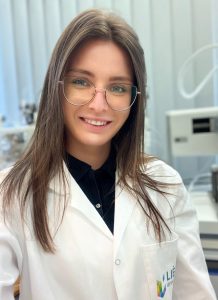 We are delighted to welcome Dr. Mariia Hruzd to CiTOS, the Center for Integrated Technology and Organic Synthesis at the University of Liège.
We are delighted to welcome Dr. Mariia Hruzd to CiTOS, the Center for Integrated Technology and Organic Synthesis at the University of Liège.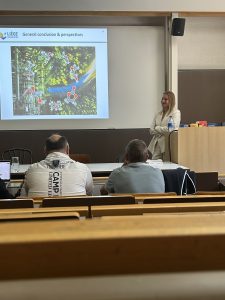 Claire successfully defended her PhD thesis, New Perspectives Toward the Valorization of Bio-Based Molecules, last Monday! During her five years at CiTOS, she explored the complex chemistry of vicinal diols—key bio-based building blocks—through a multifaceted strategy that combined traditional physical-chemistry methods with modern tools such as machine learning and DFT.
Claire successfully defended her PhD thesis, New Perspectives Toward the Valorization of Bio-Based Molecules, last Monday! During her five years at CiTOS, she explored the complex chemistry of vicinal diols—key bio-based building blocks—through a multifaceted strategy that combined traditional physical-chemistry methods with modern tools such as machine learning and DFT.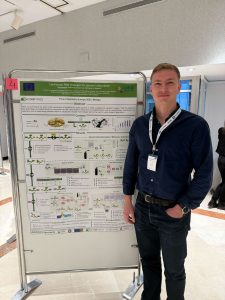 We bid farewell to Florian Barbaz, a PhD student in the D-Carbonize MSCA network, who has been an integral part of our team at the Center for Integrated Technology and Organic Synthesis.
We bid farewell to Florian Barbaz, a PhD student in the D-Carbonize MSCA network, who has been an integral part of our team at the Center for Integrated Technology and Organic Synthesis.